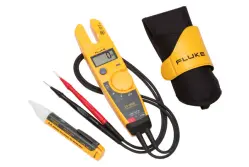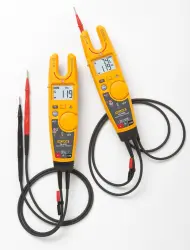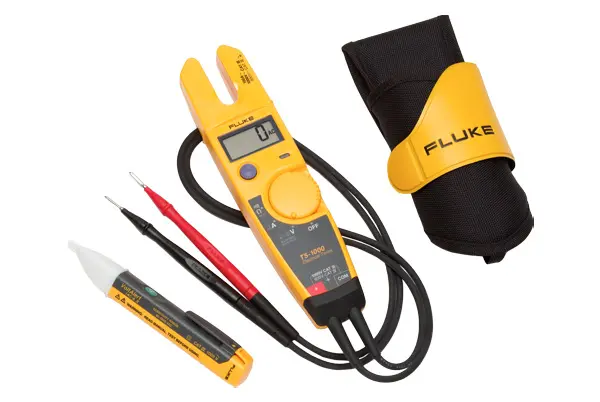Electrical Testers
Click image to enlarge
Voltage testers are used to determine the presence or absence of voltage in a piece of equipment under test. Voltage testers are generally specific to AC or DC voltage. Most are suitable for either line-voltage or lower-voltage ranges though some are intended for mains-voltage detection.
Circuit testers are devices for testing AC outlet load handling capabilities plus outlet tester functions as a way to determine whether or not a circuit is good.
Continuity testers are designed to determine if an electrical path can be established between two points. The test is completed with the power to the circuit turned off. This is a much safer alternative than trying to trace wire routes by testing energized circuits.
Features:
Circuit testers are devices for testing AC outlet load handling capabilities plus outlet tester functions as a way to determine whether or not a circuit is good.
Continuity testers are designed to determine if an electrical path can be established between two points. The test is completed with the power to the circuit turned off. This is a much safer alternative than trying to trace wire routes by testing energized circuits.
Features:
- Audible or visual detection
- AC or DC Voltage
- Circuit Tester options
- Continuity testing options.
- Pen Style, or clamp style
Show:
Electrical testers are devices designed to test the presence of, rather than measure, electrical conditions. These testers can range from very simple instruments that signal that voltage is present in a circuit, to more complex instruments featuring multiple testing options for high-voltage applications
Though there are other instruments, such as multimeters, capable of doing the work of most testers, the simplicity and low cost of testers makes them a crucial component in the toolboxes of electrical technicians.







